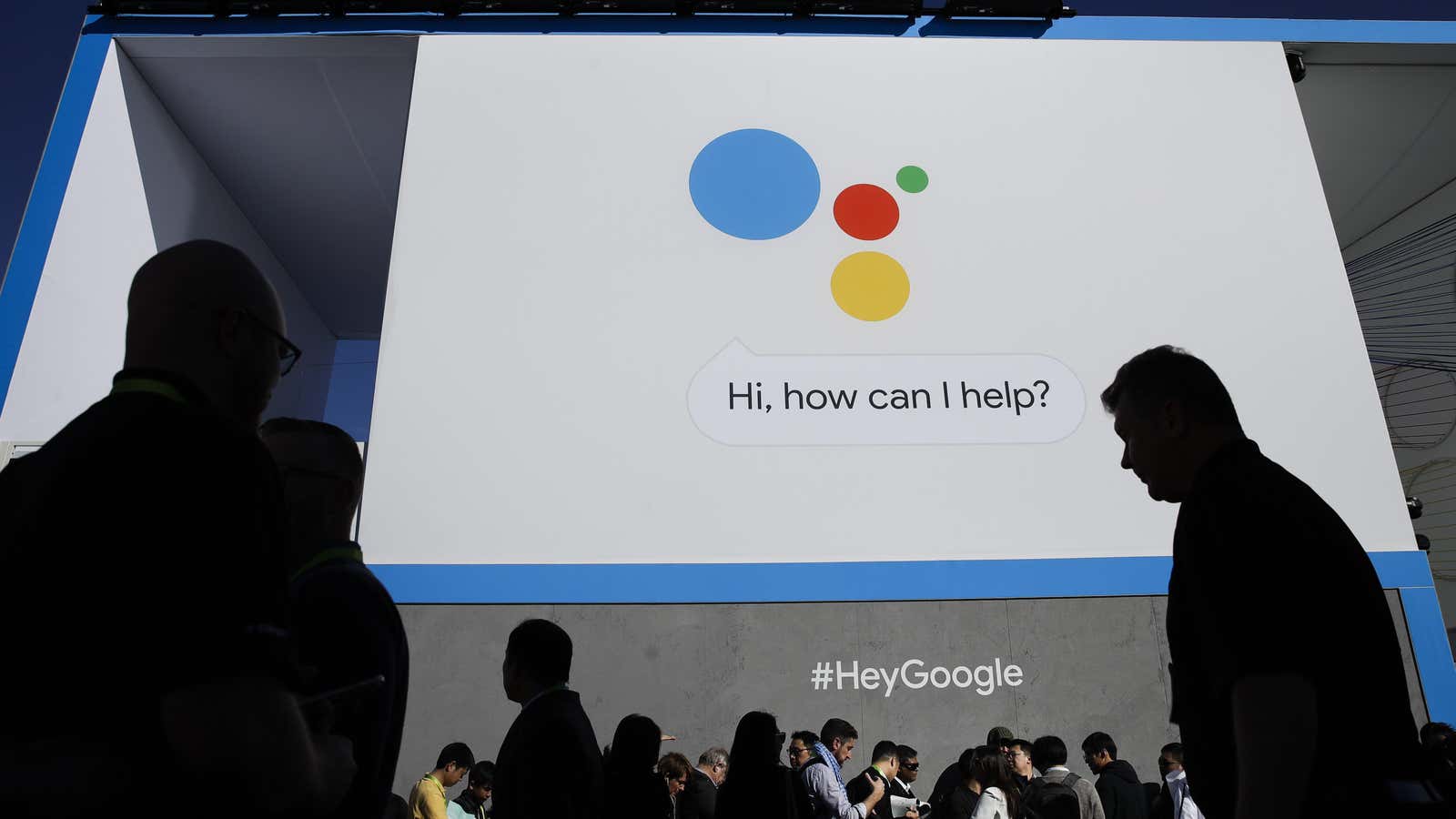In the battle for the cloud, Google wants to make its AI offering as easy as drag and drop.
This week, the company announced Cloud AutoML, a cloud service that allows average folks like you and me to train a custom AI algorithm using files we upload. The service will start with still images, but Google plans to expand this technology to all of its AI offerings, such as translation and video processing.
Google says that AutoML is geared towards people who want advanced image recognition but don’t have the expertise to build it. For example, the user wants an algorithm that doesn’t just identify that an image is of a bird, but that it’s a bluejay.
AutoML was built off research conducted by Google, as Quartz first reported. The research created 1,000 algorithms and made each compete on a specific task like image recognition. The winner was then used as a baseline for 999 new algorithms, and so on and so on, taking cues from Darwin’s theory of evolution.
The business of selling cloud services has become a hot battlefield for tech giants with hulking data centers. Amazon Web Services is already a $12 billion a year business, while Google Cloud and Microsoft Azure trail with less than 20% of that number combined. But artificial intelligence, a still-nascent industry, is seen as something that can differentiate offerings. For instance, Microsoft is trying to make AI programming easier by letting Microsoft-natives design algorithms in Visual Studio.
With this new service Google is trying to expand the group of people who can access and use AI software, rather than offer new capabilities. Google says the user interface is so simple that people who don’t know how to code can build and deploy an algorithm on their own. Typically, cloud companies have two AI offerings: a general-use algorithm for developers that know basic code, and a service for running custom algorithms from those with advanced skills.
Based on Google’s previous research on algorithms that evolve to get more accurate results, AutoML edits a customer’s algorithm to optimize it for a specific task, like recognizing images of car models or yogurt brands. That work typically requires someone with a high level of education in the field, which is an expensive hire.
While Google is selling Cloud AutoML as a single super-smart service, it’s really many parts working together. Customers can upload unlabelled data (ie, a picture isn’t tagged as a dog, cat, or person), and Google says that AutoML will automatically label it. In reality, the company is crowdsourcing the task to humans, through services like Amazon Mechanical Turk. After the data is labelled, the algorithm is trained and optimized, at which point the customer checks that the results are correct. If it’s not, or if the data is biased or fixated on a certain piece of data, the customer can tinker with the results and retrain the algorithm. Google puts the onus for biased AI on the customer, but notes that there are visualizations to explain how the algorithm has learned from the data provided.
Google says it is slowly rolling out Cloud AutoML to customers, and hopes to bring the technology to every one of its AI services. The pricing for the service is still unknown.
